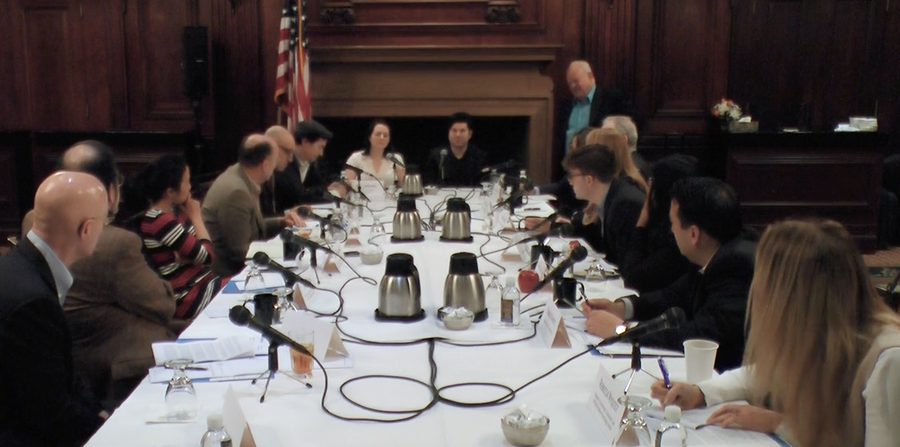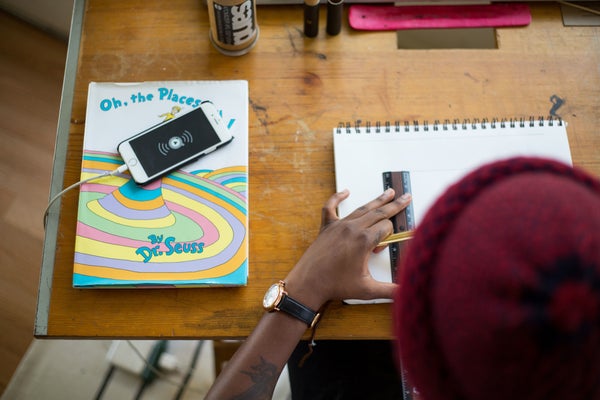This article was published in Scientific American’s former blog network and reflects the views of the author, not necessarily those of Scientific American
What is the role of imagination in education, and how can education foster imagination and creativity? What is the purpose of education? What is the purpose of a teacher? What are the active ingredients of effective learning? Given educators’ penchant for measurement, how might imagination and creativity be assessed in students and in teachers?
These were the sort of questions discussed by a group of leading educators, psychologists, designers, and entrepreneurs that convened earlier this year in Philadelphia. Goals of the weekend included discussing and advancing our knowledge of what role imagination plays in learning, how schools can plant and nurture imagination in children, and what the perfect vision of an imaginative education might look like, both in theory and reality.
Participants in the retreat included:
On supporting science journalism
If you're enjoying this article, consider supporting our award-winning journalism by subscribing. By purchasing a subscription you are helping to ensure the future of impactful stories about the discoveries and ideas shaping our world today.
Kanya Balakrishna Cofounder & President, The Future Project, NYC
Angela Duckworth Cofounder, Character Lab; Professor of Psychology, Penn
Mark Gutkowski Director of Mastery, Avenues: The World School, NYC
Stephen Hamilton Dean of the Graduate School of Education, High Tech High
Scott Barry Kaufman Scientific Director, Imagination Institute
Donald Kamentz Executive Director, Character Lab
Jessica Lahey Journalist/Author/Teacher
Andrew Mangino Cofounder & CEO, The Future Project, NYC
Rebecca Nyquist Research Coordinator, Duckworth Lab, Positive Psychology Center, Penn
Dominic Randolph Head of School, Riverdale Country School, NYC
Martin Seligman Director, Positive Psychology Center, Penn
Neil Stevenson Executive Portfolio Director, IDEO
Diane Tavenner Founder & CEO, Summit Public Schools
Boyd White Assistant Director, Summer Academic Programs, Center for Talented Youth

Credit: Scott Barry Kaufman
So what happens when you get the equivalent of the starting line of the LA Lakers in the education world together for two days to discuss some of the most important questions surrounding the nurturance of possibilities in children? After an entire weekend of circling around the topic of imagination and creativity,the one thing that everyone could agree on is that there is no simple formula or magic ingredient, no one thing that fosters creativity in education. Nevertheless, schools can make a number of changes to their culture to increase the chances that a creativity weather system might form, a system that might just coalesce into a perfect storm, causing creativity to rain down.
Among the various factors discussed were:
Talent
Intelligence
Grit
Commitment
Passion
Personal investment
Efficiency
Inspiration
Engagement
Imagination
Creativity
Comfort with frustration
Curiosity
Acceptance of discomfort
Opportunity
If we were to define imagination in terms of education, based on our discussion over the weekend, imagination-- this critical piece of learning, passion, and agency-- is best defined as what allows students to know what could be, to have hope, and to find ways to turn that hope into reality.
We hope the fruits of this retreat inspires educators, administrators, and parents to put imagination and creativity front and center on the agenda! As you can clearly see through these discussions, creativity is not an add-on, or an enhancement once the student acquires knowledge. It's what enables deep learning, and the proliferation of a more peaceful world.
You can download the full report here.* Also, here are some highlights:
* Thanks for Jessica Lahey for preparing the report!
